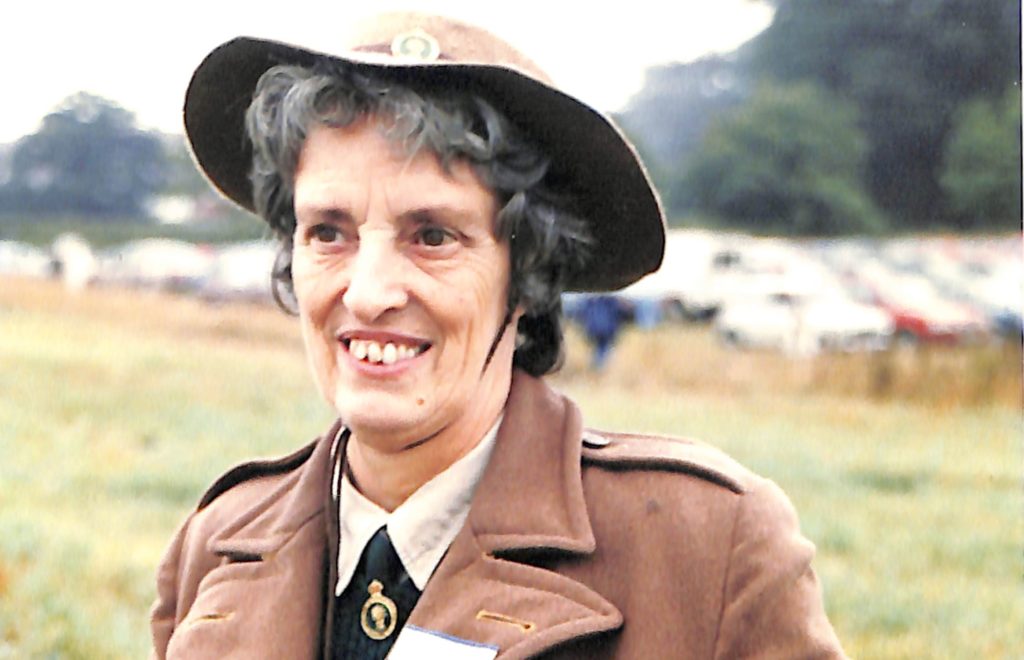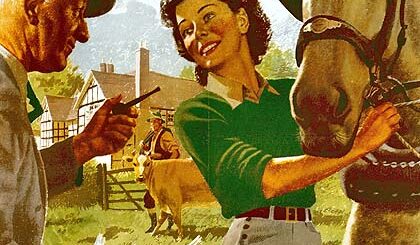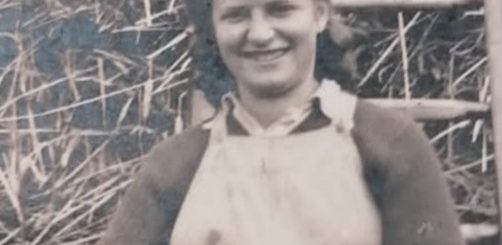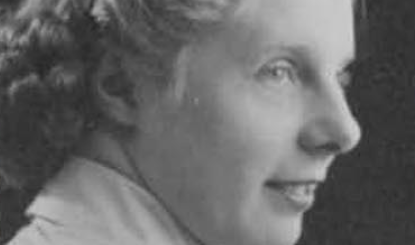International Women’s Day 2020: Mary Linda Ashbolt (née Haynes) WLA Scrapbook
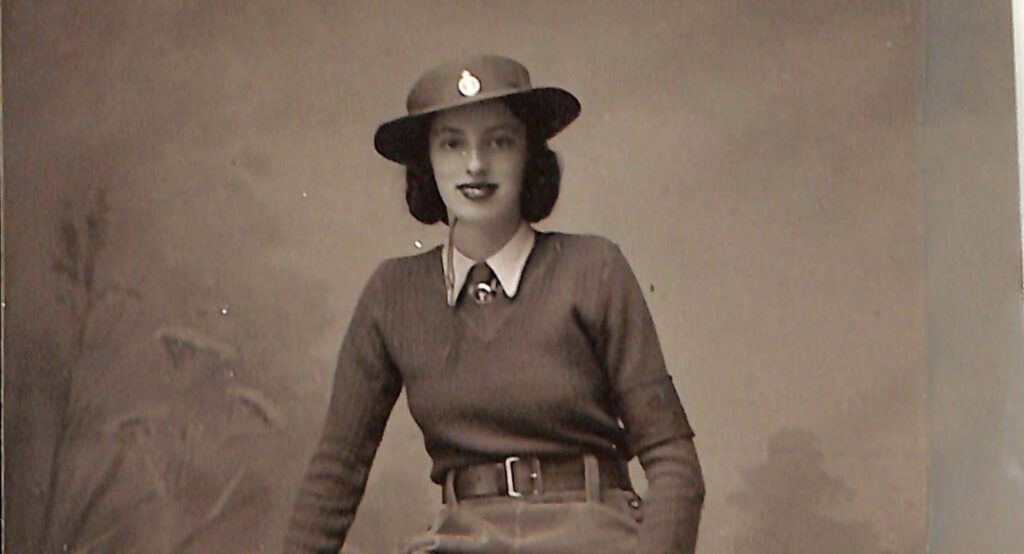
Mary Linda Ashbolt (née Haynes) was an active member of the Essex Women’s Land Army during the Second World War. Aged 18, Mary joined the WLA in 1943 and worked on a fruit farm in Essex until 1947. After the war, she attended many reunions and events, many of which took place in the Eastern region. Luckily for us, she took the time to paste copious amounts of photographs, newspaper clippings, and other ephemeral material into a scrapbook.
Courtesy of Mary’s children Caroline and Clive, this International Women’s Day, we can lift the cover of Mary’s scrapbook. Find out about Mary’s time in the WLA and the important role which reunions played in her life during the post-war period. Highlights include photographs of Mary’s work in Essex, reunions on farms with other Land Girl veterans, along with the launch of Iris Tillet’s book ‘A Cinderella Army: Women’s Land Army in Norfolk’. Mary’s scrapbook offers a vital insight into how she not only cultivated fruit during wartime, but friendships to last a lifetime.
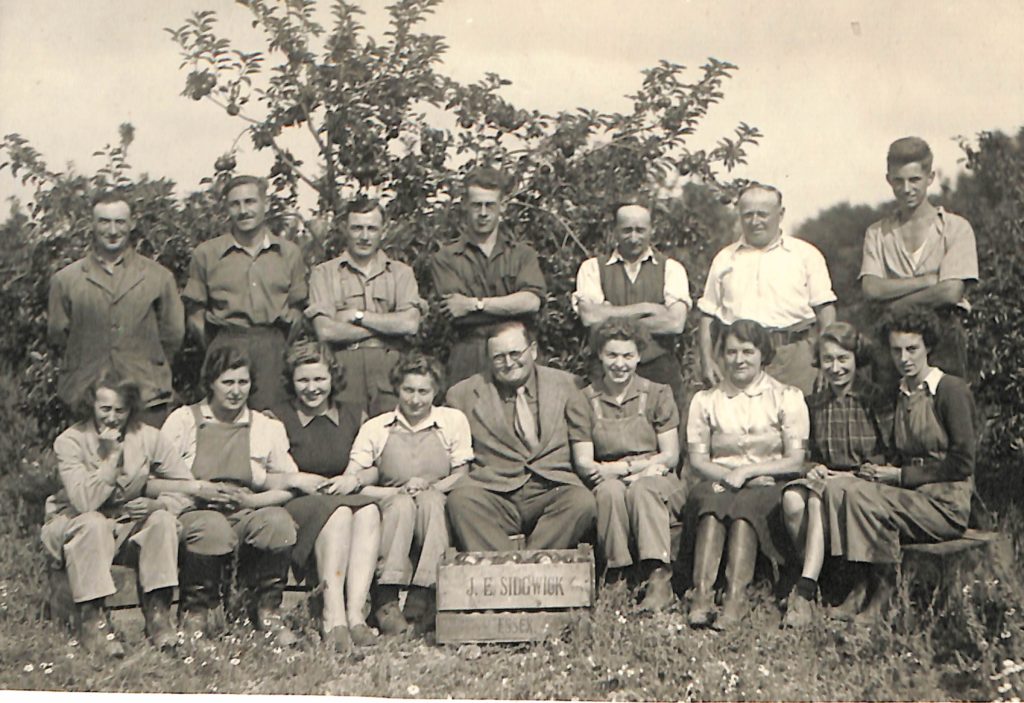
The Scrapbook
Scroll through the scrapbook below. Alternatively, you can view a PDF of the scrapbook here.
Haynes-WLA-Scrapbook-OCRMemories of a fruit farm Land Girl
In the back of Mary’s scrapbook was a handwritten document, which reflected on her experiences as a Land Girl in Essex.
There is little mention of these (few maybe) WLA members whose life during WW2 was centred at one of these fruit farms, or in a gang from the War Ag. going round helping with spraying etc. I joined the WLA at 18 in 1943 and served on a fruit farm in Essex all my service time to 1947. I was one of the lucky ones who was allowed to remain at home, as most of the girls in the village did.
In a year of varying jobs we did:
- Winter pruning, plus picking up the pruned cuttings (by hand), and taking them to the headland for burning .
- Winter spraying with tar oil. Two of us walking behind the tractor spraying with hand lances all daywith a young lad driving the tractor.
- Spring spraying with lime sulphur, a smelly job. In fact rushing to the pictures one evening after we had finished work (having washed and changed top clothes), there were several of us and we found as the cinema got hot the aroma of lime sulphur wafted about us. When we looked round we discovered a circle of empty seats round us. Cordon apples were kept on part of the farm and these made extra work because they had to be tied in every year.
- Summer we worked extra hours at harvest time, first with the plums then apples. Some summer pruning had to be done also further spraying, each season had its own spray programme and spraying nearly always seemed to coincide with Easter.
- These were some of the jobs besides the normal farm workings, box mending (bad weather), ripping, more grass and hedge trimming and bonfires (autumn time).
- We finished work on Saturdays at 12 o’clock and the rest of the weekend was ours.
Some Saturday afternoons our district representative Lady Ada Nield would invite us to her home to learn if there was any problems. There was always a cup of tea and dainty homemade cakes to welcome us. We found her a good friend. She also came to the farms where we worked and no matter what the job she’d visit. My friend remembers the day when muck spreading was in full swing and her Ladyship walked through to talk to all the girls.
All correspondence was sent to the Institute of Agriculture, Writtle, Chelmsford where the organising secretary Mrs Sally Flood was. Entertainment consisted of local dances or sometimes several of us cycled into Colchester to the pictures or a dance, the latter closed at 10pm (hospital blues had to be back to their hospitals and we had a 7am start to work the following morning). Last buses left town about 9.30 so cycling five miles back to our village gave us a little extra time.
Sometimes, from the local Ack Ack batteries invitations were given to attend a social dance on their site. These were held on a Sunday. Another time I remember we were taken to a classical music evening but feel it was a bit highbrow for most of us. A small number of girls interested in football would go to see Colchester United play when they were at home. Thus we could converse with the men during the week.
